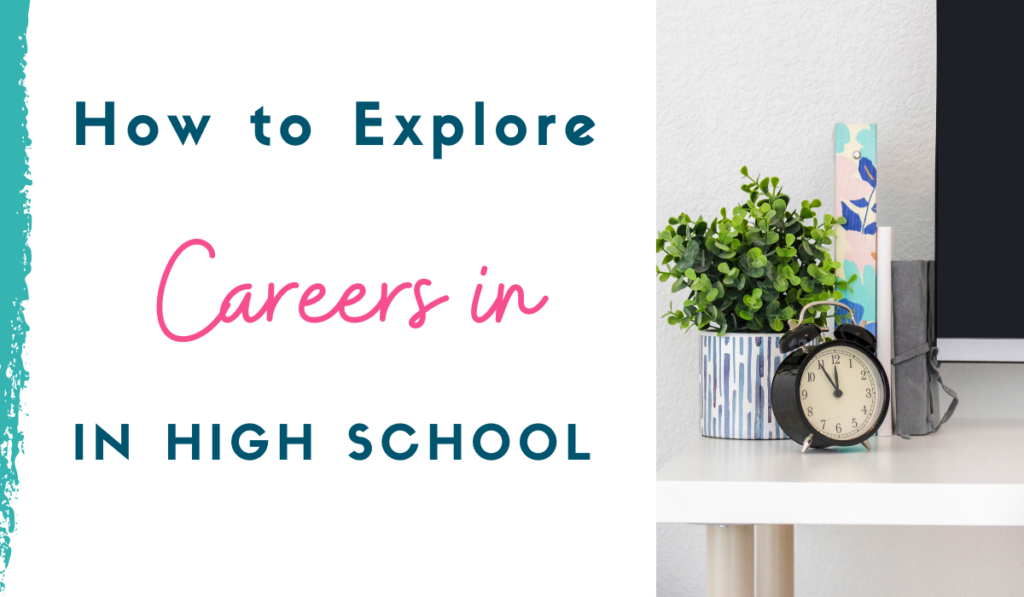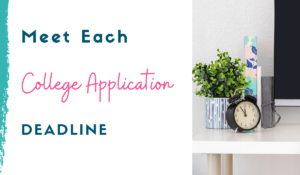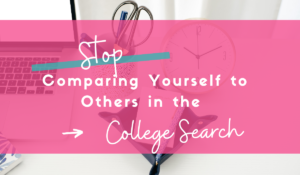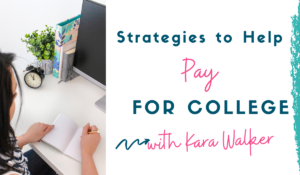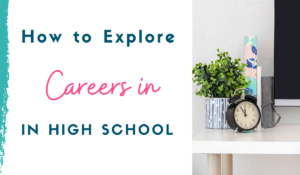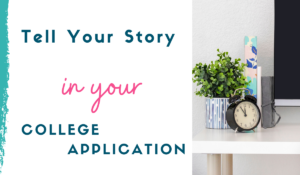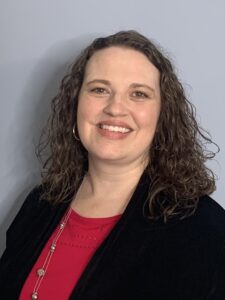What do you want to do when you grow up? That’s a hard question to answer, and the answer can definitely change! As parents, you may not be doing what you thought you wanted to when you were younger.
How do we expect teenagers to know what they want to do? How can they even figure out the options or what they may like?
Today, we’re going to talk about 5 different resources students have available to them to explore careers.
This show is for the confused college applicant and family to learn simple and effective strategies to help you find the BEST college for your student while having positive conversations. This will turn you into the College Ready applicant and family so you can be confident with your next steps and your choice of college!
Please subscribe so you don’t miss any episodes! Here are a few episodes you might be interested in:
- Episode 9 Now is the BEST Time to Start Your College Search
- Episode 15 Rules for Email Etiquette: Making the Best First Impression
- Episode 26 How to Find a Career that is Right for Me
- Episode 27 Your Path to College is Not One Size Fits All
You can also download our free guide on How to Start or Expand Your College Search here.
I’m Courtney Kountz and I’m looking forward to serving you and your student!
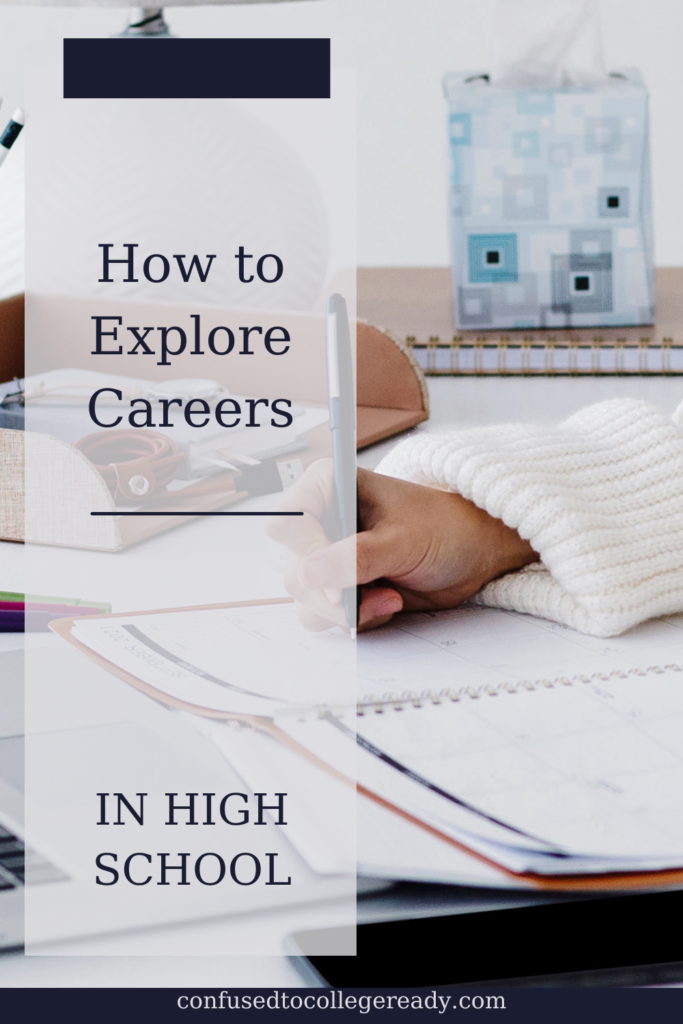
Podcast Transcript
0:00:00.8 S1: There are multiple opportunities for students to be able to explore careers, and I am really excited to dive into some of those potential options for you and your student as you are exploring and preparing for that college search. These different opportunities are a time where students can see, Is this really something that I’m interested in? Or, Oh my gosh, I don’t want anything to do with this. I’m really glad that I figured that out.
0:00:30.9 S1: So we’re going to do a deep dive into some of those areas and how you can explore potential career experiences as a student, or how as a parent, how your student can explore some of those experiences. So stay tuned.
0:00:49.5 S1: Hey there, this is Courtney, and I am so excited to welcome you to our 31st episode. It is hard to believe that we are this many episodes in, and thank you so much to those of you who have been listening and been just sharing the podcast, we really appreciate that if you have not shared the podcast or left to review up to this point, I would greatly appreciate it if you would do that. That helps other people be able to find us… The other thing that we have is a brand new Facebook group where… Not brand new, but a Facebook group where you are able to join us and ask different questions, I will be in there for some live coaching, you can find that it confused to college ready dot com group, and you can join us if you also just do a search and Facebook, it’s confused a college ready, and we will be doing some free trainings and other things, we would welcome you there. We also are going to have a catalog of all of our podcast episodes so that you can easily search for those… The other thing that’s going to be coming soon, we are going to have some coaching opportunities and a beta course, which is our first time, we will actually be recording the course and you can help give insight and input into what it is that you want to see and the things that would be the most helpful for you as the family that is maybe confused about what to do with college to help you be truly college-ready and prepared, so please know that’s coming, I will be talking in our coming episodes about what you’re going to be able to get in that particular course.
0:02:28.7 S1: So let’s go ahead and dive in. So today we are going to talk through five different areas where students are able to explore and have some different career experiences, so the first one, and this is someone who might be employed in your school already.
0:02:48.6 S1: This is someone who… It’s not your school counselor, this is someone who can give you some insight into potential careers, be able to look at and discuss what your interest might be, and that’s your Career Development Facilitator… That Career Development Facilitator is someone who is going to be able to meet with students, they’re able to complete career interest inventories, they’re able to talk about.
0:03:12.8 S1: Hey, you know what? You define business as I feel that you might be interested in, that still is pretty broad, and so as you have those discussions, How can you narrow that down, they’re going to be able to give you some other tools that you can use to explore that Career Development Facilitator can be a wonderful, wonderful resource.
0:03:36.4 S1: The other thing that they actually are able to do is to help you with resume writing, with looking at letters of any kind of personal letter that you’re sending in with that resume, so that you can better make a connection, they are able to help with interview experience there are a lot of different pieces that that Career Development Facilitator can explore, sometimes in your schools, they might bring in a career fair or a college fair, those fairs are also fabulous ways for you to be able to get connected. So make sure that you’re taking advantage of that. Be on the look out for those resources, they might have a FAFSA completion Night at the school, they might have just several different opportunities that maybe they’re going to bring in some different speakers so that you can hear from other people about what are schools looking for, how do you interview other things. So.
0:04:33.5 S1: That Career Development Facilitator is incredibly, incredibly helpful and is a wonderful resource for students to utilize, you also have your school counselors that are there at school, and so I definitely don’t want to discount any of their expertise or their involvement or what they would be able to help with, however, that Career Development Facilitator, that really is a large part of what their function, and counselors are also there to help with academic social-emotional components, but as we’re talking about the career piece, just know that that person is a fabulous resource.
0:05:10.5 S1: Alright, so first resource that we have is the Cree Development Facilitator, the second resource, this person is also actually typically employed by the school, or they might be shared between schools within the district, and they are going to really… They’re going to do a deeper dive than what your counselor and that Career Development Facilitator are looking into.
0:05:36.1 S1: This person is going to be the work-based learning coordinator, so this person might be setting up interviews for you to actually go into a place of business and interview them, not for them to interview you for a job, although that could be one of the things, but for you to interview them and get more information about what that person is doing day in and day out, so that students can see, is this something that would be a good fit for me, maybe they are helping students getting connected with an apprenticeship over the summer, they might be helping students connect and do an internship that might be, whether that be with classes, whether that be a true internship experience where students are getting credit for an internship, there can be multiple components to this, and there’s not a… There’s not a right or wrong way to use that work-based learning coordinator, although I will say, I want to make sure to encourage you to be respectful in any interactions that you’re having or that your student is having with these professionals, whether that be the school employees that are helping or someone who’s out in the community because they’re taking time out of their day to be able to help, and you want to make sure that your communication is always incredibly respectful, especially with these two people, because they do have a lot of connections in the community.
0:07:10.4 S1: And when you want help is in, I will reference my email etiquette episode, I will link that in our show notes, but that’s a pretty important one when you look at how to respectfully communicate with others, and I have a story that I will share about that another time where we had some students that weren’t necessarily as respectful maybe as they should have been or could have been, and how that impacted them, and then we have other students who have been incredibly respectful. I have one young lady I worked with, she was incredibly involved, had multiple contacts, lots of different things, so super, super exciting that we have both of these individuals, so first one is our Career Development Facilitator, the second one is the work-based learning coordinator. So the third opportunity is, or the third resource for different career experiences, I referenced it a little bit in the second one, but this is going to be having an internship, and it might be a formal internship where you are getting course credit, or it might be something where you’re just kind of going… Maybe it’s even with that you are employed and part of your job is also that internship where you’re learning the role of some of those bigger things within the company.
0:08:33.4 S1: So this is a great opportunity.
0:08:35.9 S1: Students during an internship, you get to see what things are like in that specific job, you get to look into the pieces that maybe you wouldn’t learn about otherwise, just hearing from someone, you actually get to experience it, and then sometimes students are even able to really dive in and practice some of the things that they’re learning. So internships are, again, another great way, so we’ve got career development facilitators, work-based learning coordinators, internships.
0:09:11.3 S1: Another one is a job shadow, so number four is a job shadow with that job shadow that is going to be a more short-term experience, so they might have days… Job shatters in a middle school, job shutters or a college visit day in a high school where students are able to have an excused absence if they go into a setting and they spend time with someone for a day. Now, this does not have to be in a field. Sometimes students will end up being in the field that they say, Oh, you know what, I learned I don’t want this. Or they are learning that, yep, I really think I might like this. And so sometimes counselors are helping with that, parents using connections, but that job shadow gives you a chance to spend a day in the shoes of that person or following them around. So we’ve got pre-development facilitator, work-based learning coordinator, internships, job shadows, and then number five is all about networking, so it really is with networking, you are taking the people that you know as the student that families know, neighbors, friends, relatives, someone from school, when you realize that there’s something that a student that you as the student or that your student, the year of the parent is interested in doing, then you take the opportunity and the time to be able to connect with someone or maybe say that you’re interested in broadcasting and your neighbor or someone who attends your religious ceremony or your church service, or they go to…
0:11:10.0 S1: You might go be part of the same club or community event, or there is, like we said before, a career fair or a college fair, and so being able to, again, showing that utmost respect to using manners, shaking hands when you shake hands with someone, you want to look directly in the eye. So using those opportunities to be able to see what else you can do, your Career Development Facilitator, the work-based learning person, that internship and job shadow, and then lastly, this network event, all of those things really can work hand-in hand, and being able to give students an opportunity to see what they’re most interested in, so within the course that we’re going to have, we’re going to do an even more in-depth look at each of these and how students can go about finding them, there are a lot… Often a lot of untapped resources that are available in the community, if you have local community colleges, if you have universities, so lots of different opportunities. So again, those five different ways that students can connect with careers, and they’re also… And I’m going to give you a bonus. Sixth one, so we’ve got the Career Development Facilitator, work-based learning coordinator, internship, job, shadows, networking, and then there are also an online option, so are your school might have something like Naveen or score, and what students are able to do when you go into those Road Trip Nation also has video interviews that you can watch with professionals to hear from them about what they want, maybe doing some of these things, if you’re in a rural area, that might not be an option, and when the world closed for the pandemic, going and spending time with people wasn’t an option, it took a long time to be able to get everything open back up so that students could go in and do those…
0:13:04.4 S1: Participate in that.
0:13:06.0 S1: So I hope that this has been helpful. If it has, please please share and share the information with your friends and leave us a review, don’t forget to connect in our Facebook group, and I look forward to speaking with you next time and being able to have some more information about our course. If you want to get on the waiting list for that course or for more information, and you also can get our free guide on how to start or expand your college search, go to confuse to ready dot com, how to start. And we’ll have all the information there. Until next time, take care.

